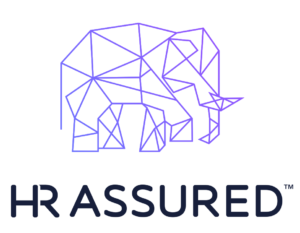Consultation: The bedrock of an effective mandatory vaccination policy
December 17, 2021The Full Bench of the Fair Work Commission (FWC) has recently ruled that BHP’s mandatory COVID-19 vaccination policy for workers at the Mt Arthur coal mine is not “not lawful and reasonable” in a decision that will have a significant impact on business-driven vaccination mandates going forward.
In this article we point out the key components of this decision and what this may mean for businesses.
The facts
Back in October 2021, BHP announced that all workers at the Mt Arthur coal mine would need to be vaccinated to continue working. Specifically, the policy required employees to:
- Receive at least the first dose of an approved COVID-19 vaccine by 10 November; and
- Be fully vaccinated by 31 January 2022.
In a similar approach to the many Government Directions that have been implemented across the country, BHP provided a lead time of a month for workers to comply with the policy.
When the 10 November deadline arrived, 80 BHP employees were stood down on the basis they could not provide evidence of vaccination, with the number reducing to 50 upon further evidence being tendered by employees.
In response to this, the Construction, Forestry, Maritime, Mining and Energy Union (CFMMEU) made an application to the FWC to determine whether the mandate was valid for employees covered by the Mt Arthur Coal Enterprise Agreement 2019.
The case before the FWC
On its face value, the FWC viewed the vaccination policy as a lawful direction as it both fell within the scope of the workers’ employment and there is nothing unlawful about individuals being vaccinated.
It was also seen to be reasonable in many respects, including on the basis that the policy:
- Sought to ensure the health and safety of workers;
- Was reasonably proportionate to the risks associated with the COVID-19 pandemic;
- Was developed based on the contact workers will have with other workers
- The implementation coincided with the COVID-19 risk within NSW and the local area at the time; and
- It was implemented after a significant period spent encouraging take-up of COVID-19 vaccinations, including through an on-site vaccination hub for workers.
However, where the policy failed was in the level of consultation that BHP engaged in prior to giving it effect and standing down workers. The FWC agreed with the CFMMEU that communication with workers fell short of the requirements contained in section 47 of the Work Health and Safety Act 2011, which requires employers consult as far as is reasonably practicable where implementing policies and procedures relating to WHS concerns.
In particular, the FWC commented that employees “were not provided with information relating to the reasons, rationale and data supporting the proposal, nor were they given a copy of the risk assessment or informed of the analysis that informed that assessment.” On a finding that “in effect, the employees were only asked to comment on the ultimate question: should the Site Access Requirement be imposed?”, the FWC considered that this was ultimately insufficient to amount to consultation necessary under the WHS Act.
The lesson
It would be naïve to assume this decision means the end of workplace vaccination mandates, particularly because of the comments the FWC made about the policy’s otherwise reasonableness. However, it does confirm that a key requirement when implementing new policies within any business, and particularly mandatory vaccination policies which are in current consideration for many employers, is genuine and meaningful consultation with staff, especially where it can result in standing down employees or disciplinary action including termination.
The FWC noted that had BHP consulted with their employees about the Site Access Requirements, there would have been a strong case in favour of the policy being a reasonable direction. In doing so, the FWC has emphasised the importance of following process and not just looking at the effect of a direction when determining whether an employer’s direction is reasonable.
It is important to note that the BHP’s policy was implemented in the absence of any Government Public Health Orders or Directions for access to mines in NSW. Had there been such a direction, BHP would not have needed to follow the worker consultation processes outlined in the WHS Act before adopting the Site Access Requirement, because it would not have been a direction made by the employer but rather one imposed by law.
We recommend any business contemplating the implementation of a mandatory vaccination policy gets in touch with us to discuss the best methods to consult with your workforce and maximise the chances of your policy being found to be lawful reasonable, and enforceable.


























